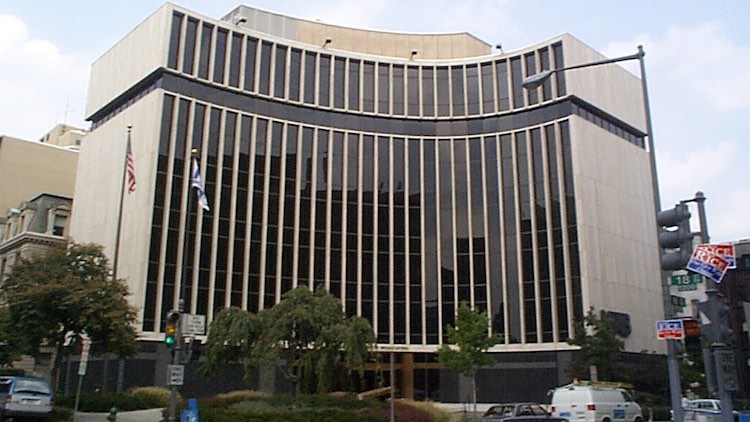NAB Lists Reasons Microsoft's Vacant Channel Push Is Off Base

The smarter way to stay on top of broadcasting and cable industry. Sign up below
You are now subscribed
Your newsletter sign-up was successful
Broadcasters were ready to push back on Microsoft's announced Rural Airband Initiative, in which it plans to team with telecommunications companies to extend broadband to 2 million more people by 2022.
The computer company wants the FCC to set aside a broadcast channel in each market for unlicensed wireless, which it says it will need for the new rural broadband initiative, an issue close to the heart of FCC chairman Ajit Pai.
NAB issued some talking (actually talking back) points following Microsoft president Brad Smith's blog post outlining the proposal.
Those included that there are not enough channels as it is to accommodate all the broadcast TV station moves in the repack; that so-called white spaces devices can already use vacant channels and ch. 37 and now the duplex gap between broadcast and wireless operators post-auction; that reserving the new channel would put unlicensed ahead of broadcasters, who are supposed to have primary status; and much more.
Microsoft had already telegraphed the rural broadband angle on its longstanding push for using so-called vacant channels for unlicensed. NAB referenced a story in B&C last week in firing backTuesdayafter the announcement became official.
"It's the height of arrogance for Microsoft—a $540 billion company—to demand free, unlicensed spectrum after refusing to bid on broadcast TV airwaves in the recent FCC incentive auction," said NAB spokesman Dennis Wharton. "Microsoft's white space device development has been a well-documented, unmitigated failure. Policymakers should not be misled by slick Microsoft promises that threaten millions of viewers with loss of lifeline broadcast TV programming."
Public Knowledge, a big white spaces fan, saw it quite differently.
“Microsoft’s proposal to ‘seed’ TVWS technology guarantees that if the FCC will prioritize rural broadband over broadcast lobbyists, we can solve the digital divide and make affordable broadband available to all Americans," said Public Knowledge SVP Harold Feld. "It's time for the FCC to put broadcast lobbyists on mute and manage the public airwaves for the benefit of the public.”
“NAB’s claim that Microsoft or rural broadband providers are somehow getting free and exclusive TV spectrum is false," said Michael Calabrese, director of the Wireless Future Program at New America's Open Technology Institute. "Unoccupied and unlicensed TV channels are open equally to everyone and used today primarily by small rural operators and school districts to address the homework gap.
“The use of vacant TV channels for broadband would grow exponentially if the FCC resolved the uncertainty around leaving at least one of the two channels now reserved for unlicensed microphones vacant in every market nationwide. A guarantee of unlicensed TV spectrum is most critical in urban markets, since the cost of equipment will drop dramatically if there are national markets and the ability to use unlicensed TV spectrum for Wi-Fi on mobile devices.”
The smarter way to stay on top of broadcasting and cable industry. Sign up below
Contributing editor John Eggerton has been an editor and/or writer on media regulation, legislation and policy for over four decades, including covering the FCC, FTC, Congress, the major media trade associations, and the federal courts. In addition to Multichannel News and Broadcasting + Cable, his work has appeared in Radio World, TV Technology, TV Fax, This Week in Consumer Electronics, Variety and the Encyclopedia Britannica.

